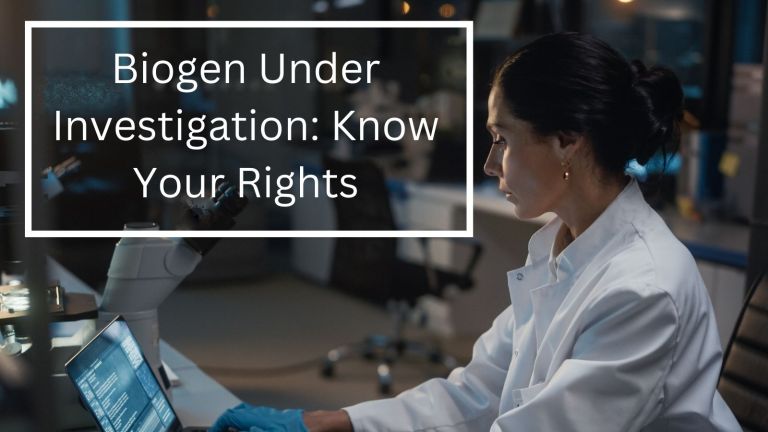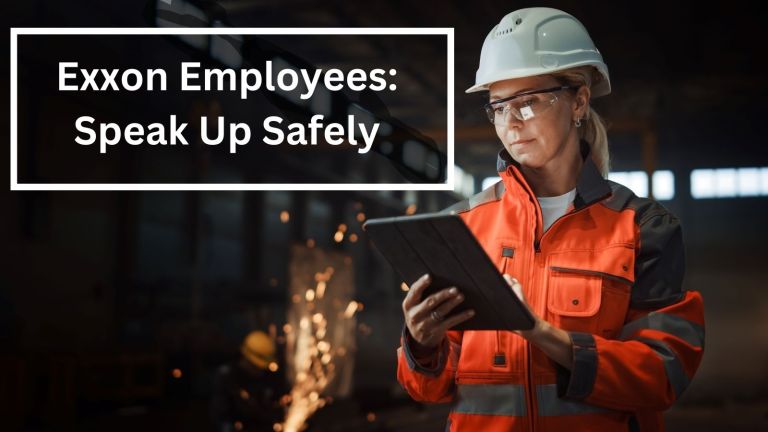As part of our Corporate Accountability Interview Series we’ve been speaking to some of the leaders in the field of corporate accountability, finding out what they do and why they do it.
As a part of the series, I had the pleasure of interviewing Professor Philip Nichols, Professor of Social Responsibility in Business, at the Wharton School. Professor Nichols has an outstanding career and to name all his achievements would take some time. Highlights include his Fulbright Fellowship in 2001, Co-chairing the United Nations Committee on Electronic Commerce and Trade Facilitation Law Group, winning twenty teaching awards at the University of Pennsylvania and the Wharton School, and winning numerous international awards and recognitions for his legal writing on Business Ethics. Professor Nichols has a unique perspective on many compliance issues that business leaders face and was also able to share his view that there is a business case for corporate compliance. Below is our interview with Professor Nichols which is a must read for those working in compliance.
Q: Professor Nichols, welcome and thank you for joining us for this interview series. Before we dig in, our readers would love to get to know more about you. What is the ‘backstory’ that brought you to this particular career path?
Thank you for having me, and thank you for your interest in this subject. The backstory of my own interest goes back a bit before law school. When I graduated from college, my father gave me a lifechanging gift: starting money to travel and advice to go see the world. So I hit the road. The starting money from my dad was great, but just a start, so I had to work as I travelled. I worked at the lowest rung and lived with regular people wherever I went, and in the process I fell deeply, deeply in love with the world. I wanted to understand how the world fit together, and how people could interact. Law seemed to be a great approach to that understanding. After law school and clerking, I thought I should practice for a couple of years before joining academia; it was good to do so, but my eye was always on academia – the fact that I can think up questions that totally intrigue me and then get paid to puzzle out answers to those questions still amazes me. I chose to join the faculty at a business school because business seems to be a major driver of interactions around the world. The more research I conducted in the parts of the world that I love – emerging economies – the clearer it became that ethical business conduct promotes economic and social development and unethical business conduct holds back or even prevents development. And that is how my focus landed on governance and accountability.
Q: One item I noted on your resume was your position as Co-Chair of the Anti-Corruption Law Interest Group at the American Society of International Law. Can you give us some insight into your work there?
Andy Spalding, at the University of Richmond School of Law, had the idea of founding the interest group, and asked me to help. We served as the first Chairs, but Andy deserves all of the credit for envisioning the interest group. The American Society of International Law is one of the largest and most influential international law associations in the world; interest groups enable people within this huge organization to focus on their particular interests. I previously had the honor of serving as Co-Chair of the International Economic Law Interest Group because, as I mentioned, I am interested in how business drives so many transnational relationships. The Anti-Corruption Law Interest Group brings together practitioners, scholars, and policy-makers to push forward the understanding of corruption and its control. With Andy, and later when I co-chaired with Jan Dunin-Wasowicz, of Hughes Hubbard & Reed, we held conferences throughout the United Kingdom and in France, India, Israel, and Russia. One of the conferences produced a book (The Transnationalization of Anti-Corruption Law) and all of them involved extensive interaction among people in various positions and with a variety of perspectives.
Q: Getting back to your work at Wharton, are there any exciting initiatives or projects you’ve been involved with recently?
Wharton has a very interesting new initiative, called the ESG Initiative. The initiative is primarily a research hub at Wharton on the understanding and determination of how to measure ESG. Within the initiative there are sub-groups, some of which include curriculum subjects that students can study and other projects.
The letters “ESG” have come to stand for almost any social question, but the Wharton ESG Initiative focuses on the old school use of the term: understanding the ways that addressing issues related to the environment or governance add value to a firm, and devising better methods for measuring that value. There is nothing political about this. For almost two hundred years, the tools that we use to understand and measure firm value have gotten better and sharper. Over the last decade or so, we have figured out that firms can often add value by addressing these issues. As someone who has long been interested in the intersections between business and the rest of society, I am thrilled to see more attention paid to these issues, but at bottom, it is just common business sense. Wharton, along with other business research centers, develop sophisticated, cutting-edge business tools and business leaders use them.
Additionally, the Carol and Lawrence Zicklin Center for Business Ethics Research continues to serve as a hub for a broad range of research on the social implications and responsibilities of business. The list of topics the Zicklin Center covers illustrates the myriad ways that business is embedded in society, topics such as corruption (of course), artificial intelligence, climate change and the environment, corporate identity and culture, moral psychology, neuroethics, social impact, cryptocurrency regulation, financial regulation, central bank regulation and many other issues. The horizons of business-related research have expanded in very interesting and exciting ways.
In general, more and more students entering business programs, including Wharton, have an interest in acting in ways that benefit society. Our students ask lots of truly interesting questions and constantly develop excellent new projects. Wharton has become a hotbed of socially beneficial activities, led by our students. It is inspiring to be here with them.
Q: On that topic, in one of your recent articles, you made a business case for companies complying with anti-corruption laws. Can you take us through some of those arguments?
The business case for complying with anti-bribery laws involves avoiding costs and adding value to the firm. Bribery imposes three sets of costs on business firms. First, paying bribes adds time and money to dealing with government bureaucrats. When I give that talk to young businesspeople, some of them do not believe it, but when I give the talk to more experienced businesspeople, they nod their heads. Sixty or seventy years ago, some people just assumed that bribes sped up business in emerging economies, but for at least the last twenty-five years, starting with the research of Daniel Kaufmann and Shang-Jin Wei, real-world empirical research finds that business firms that pay bribes actually spend more time and money dealing with bureaucrats. This is true in clean and corrupt countries, and in clean and corrupt industries. Paying bribes also reduces productivity and growth. Once a firm pays a bribe, it is involved in a pretty unhealthy relationship and will face ever-increasing demands and delays. A word I constantly hear from businesspeople who have paid bribes is “trapped.”
Second, paying bribes violates laws and social norms. There are plenty of acts we all engage in that violate the law, so one might think that paying bribes is just another one of those acts and that bribery is normal in some places. Not so. We jaywalk or drive over the speed limit in very public ways, but people who pay bribes do so in secret. Even in places in which a lot of bribery happens, it is not considered acceptable, except maybe among a small group of out-of-touch elites. Most people despise corruption and corrupt actors. Similarly, some firms get away with bribery, but a firm that pays a bribe is always vulnerable to investigation and prosecution. Even in places in which a lot of bribery happens, some people go to jail, or worse, for paying bribes. Any business firm that pays a bribe puts a fairly large contingent cost in its books.
Finally, bribery limits the number of relationships available to a business firm. Consulting firms regularly publish surveys in which a large majority of international firms say that they do not want to get involved with firms that pay bribes. Some people assume that these firms want to avoid involvement with bribe-paying firms because of the potential criminal liability. There is probably some element of that, but I asked some leaders of large firms, and they replied that their more serious concern was with the quality of management in a firm that would pay bribes. Business leaders in emerging economies, by the way, often feel the relationship constraints imposed on their businesses. Many of the business associations I have worked with over the years have said they were motivated to take on the task of controlling bribery because bribery severely limited their ability to attract productive relationships with foreign partners.
Q: Those are some excellent insights. Apart from the cost of bribery, what sort of value can a firm hope to unlock if it complies with anti-bribery laws?
Complying with anti-bribery laws adds value to a firm. In addition to being more competitive and more productive, a firm that does not pay bribes has a healthier organizational culture. Every organization has a culture, which deeply influences how decisions are made and how rules and directives and mandates are interpreted. A healthy organizational culture benefits a firm in two ways. First, if the firm’s leaders create a culture in which the law/rules say do not pay bribes, but those rules aren’t enforced, firm leaders should not be surprised when workers in that firm turn a blind eye to rules prohibiting office theft and the stealing of opportunities that should go to the firm. On the other hand, when a firm has a healthy organizational culture, people associated with the firm tend to follow the rules, cooperate with one another, and work in the way the firm intends for them to work. Second, when a firm has a healthy organizational culture, customers, employees, and others associated with the firm tend to be happier and more enthusiastic, to stay longer, and to pitch in when the firm needs help. Business firms with healthy organizational climates are far more resilient during tough times. Complying with anti-bribery laws goes a long way toward creating a healthy organizational climate.
Q: In the last few years, U.S. regulators have been pushing companies to build more robust corporate compliance programs. Have you encountered a company that was setting a particularly good example in terms of their corporate accountability or compliance program?
I am glad that you asked that question. The majority of people in our world are honest and avoid corruption. Even in endemically corrupt places, the vast majority of people would like to avoid corruption. In my years of study, I have talked with perhaps a few thousand people involved in corruption. But I have met many, many more who avoided corruption. It is easy to think that everyone does it, but that is just not true.
Most business firms are also honest; the bad ones make us cynical, but the clean ones are out there. It is not clear what the old oil company Texaco did in Ecuador, but their operations in Africa had such a strong reputation for not paying bribes that border guards would wave Texaco jeeps across borders while shaking down the vehicles of Texaco’s bribe-paying competitors. Motorola, not to be confused with Motorola Solutions, used to publicly praise salespeople who refused to give in to bribe demands, while their competitor Ericsson just had to pay Nokia damages for the harm caused to Nokia by Ericsson paying bribes. IKEA, the largest furniture distributor in the world, left Russia rather than paying bribes, at the same time as Walmart was paying bribes to get into Brazil, China, and Mexico. Russian consumers made so much noise about the departure of IKEA that eventually it was asked to return, with the understanding that no bribes would be asked or offered, whereas no one is begging for Walmart to come back.
I appreciate and respect stories about huge international firms that avoid bribery, but you have to love stories of smaller firms that act in responsible ways. I once attended a company picnic in Paraguay, to which all of the company’s workers and their families were invited. Everywhere, one found the declaration that people associated with this firm would not pay bribes. The declaration was printed on banners, on plates and napkins, even on the sacks for the parent/child sack races. When I asked why, the leaders of the company said that they wanted workers’ children to ask about the declaration. Explaining this declaration to their children, these leaders reasoned, would help the workers themselves to take it seriously. Genius.
Q: That’s a fantastic idea. Are there any NGOs or projects that you have been particularly impressed by or you think deserve more praise?
There is no one-size-fits-all model for local organizations. The I-Paid-A-Bribe model developed in India relied on people reporting where they had encountered honest and dishonest government officials. The project yielded extraordinary results in South Asia and Africa, but failed to get much traction in China. Scholars, of course, tried to find out why, and culture and the ways that people interact with government seem to significantly affect success.
The Asociación Panameña de Ejecutivos de Empresa enjoyed spectacular success dealing with issues of business responsibility in Panama by developing a code of conduct which explicitly set out what was, and was not, acceptable conduct in the business community when it came to bribery. For many, this filled in gaps left by anti-bribery laws, which are purposefully vague. However, this model could not catch on in India.
Finally, the Clean Hands movements in Eastern Europe, which involved judicially led investigations against corrupt politicians, had real promise, but eventually it was subsumed in the overall changes within those countries as they joined the European Union.
On a larger scale, the world owes a debt of gratitude to Transparency International for putting corruption and issues of business governance on the global agenda, and for keeping them there. Groups such as U4 and the OECD provide mountains of important data and information. The Basel Institute on Governance, in Switzerland, produces outstanding guidance on responsible business behavior, while the International Anti-Corruption Academy, in Vienna, provides excellent training for future managers and policy-makers. The World Bank is not an NGO but deserves mention for funding so much research and promoting so many programs. Many other transnational organizations also do excellent and impactful work, but there is not enough space or time to mention all of them.
Q: Changing gear for a moment to a topic that is very important for FBR, which is whistleblowers. If you were to pick one topic, industry or issue where you wished there were more people speaking up, what would that be?
That is a really interesting question; it is like picking a favorite movie or food. Here is an answer that might not be apparent. The world is about to experience profound and fundamental changes, as artificial intelligence replaces and augments mental work in the same way that the industrial revolution replaced and augmented physical labor. There is a strong possibility that this will increase opportunities for corruption and other forms of irresponsible business behaviors. We all need to be vigilant and to speak out when we see that happening, so that society can create effective legal and social rules that enable everyone to benefit from these seismic changes.
Thank you for joining us Professor and I’m sure our audience will appreciate your insights on these topics. Is there any way readers can keep up to date with the work you’re doing?
Mostly I work on academic things that take months or years to produce, but I do occasionally post on my LinkedIn. Most helpfully, I have a course available to everyone for free on Coursera. I travel a lot, constantly, so I get to just talk with and hang out with a lot of people all over the world.


















